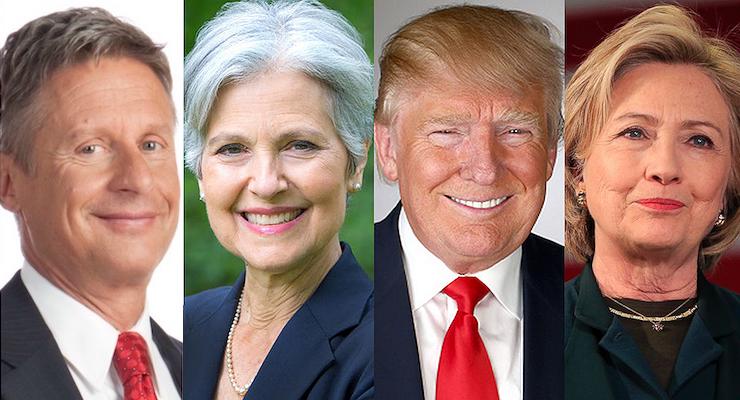This year’s tense presidential debates featured more personal attacks than discussion of policies, and the public has expressed concern over both candidates’ lack of focus on the important issues. One such issue that has been ignored is environmental policy— specifically what measures each candidate will take to decrease pollution and prevent severe climate change.
Many Americans recognize that this issue is immensely critical, considering that the welfare of the planet affects future generations. However, neither candidate has considered climate change important enough an issue to discuss on stage at the debates, even though both candidates feature opinions on this topic on their websites.
Is our environmental status truly extreme enough to merit a topic of the presidential debate? Looking at some future forecasts, the answer is a resounding yes. According to the United Nations Climate Change newsroom, due to greenhouse gases and pollution, the “average temperature could increase by another 1.4 to 5.8 [degrees Celsius] by 2100.”
Due to increased heat and pollution, the “sea level is expected to rise by 9-88 cm by 2100, causing flooding…climatic zones could shift poleward and uphill, disrupting forests, deserts, rangelands, and other unmanaged ecosystems.” As a result, many ecosystems will decline or become fragmented and individual species could become extinct.
These consequences will not appear in the distant future, but within this century. Our generation or the next will live with the consequences of current policy that permits such levels of pollution and greenhouse gases. The policies of the next president will determine the size of the damage, and knowledge of their stances allows us voters to make informed decisions.
Hillary Clinton hopes to make environmental issues central concerns during her time in office. She wants to implement a plan which “will reduce greenhouse gas emissions by up to 30 percent in 2025 relative to 2005 levels and put the country on a path to cut emissions more than 80 percent by 2050.” The plan features a $60 billion dollar investment in green jobs and energy, and subsidy cuts to industries that produce pollution, such as gas and oil companies.
On the other hand, Donald Trump has no policy specifically centered on the environment, but rather centered around energy. Trump plans on promoting “open onshore and offshore leasing on federal lands, [to] eliminate [the] moratorium on coal leasing, and open shale energy deposits” in addition to encouraging natural gas usage and to “eliminate all barriers to responsible energy production.”
With this, it is clear to see that Clinton has a stronger environmental policy compared to Trump. However, whether she has the strongest of all candidates running for office is up for debate.
Green Party candidate Jill Stein and Libertarian candidate Gary Johnson have received a relatively large amount of support in light of this unusual and tense election season. Regardless of your opinion on voting for third party candidates, it is important to understand all options when voting.
Obviously, Stein will most strongly support governmental regulation to protect the environment, since that the main platform of the Green Party. In a rather radical approach in comparison to others, Jill Stein plans to implement a “Green New Deal to turn the tide on climate change, revive the economy and make wars for oil obsolete” if elected president. This plan involves moving to 100 percent renewable energy in 15 years and taking precautionary measures of potential pollutants.
Johnson focuses on the cost-effectiveness of governmental policy on the environment, analyzing if “efforts to regulate, tax and manipulate the private sector are cost-effective – or effective at all.” It should be noted as well that Johnson does not fully believe in climate change, stating “is the climate changing? Probably so. Is man contributing to that change? Probably so.”
The candidates’ stances on the environment have largely been overlooked in the election season, yet their policies may have grave effects on our future. One jarring policy absent from all candidates’ stances is individual empowerment to help the environment. What might that entail?
In addition to using smarter energy and appliances, it should be noted that animal agriculture is the number one cause of climate change due to waste and deforestation, and “each day, a person who eats a vegan diet saves 1,100 gallons of water, 45 pounds of grain, 30 sq. ft. of forested land, 20 lbs. CO2 equivalent, and one animal’s life.” Consider what you can do both individually and on a mass scale through your vote this election season, so we may guarantee a healthier earth for the future.
Image courtesy of People’s Pundit Daily












































































































Kris Deardorff • Nov 3, 2016 at 9:14 pm
Extremely well written and thoughtful. Thank you for sharing!